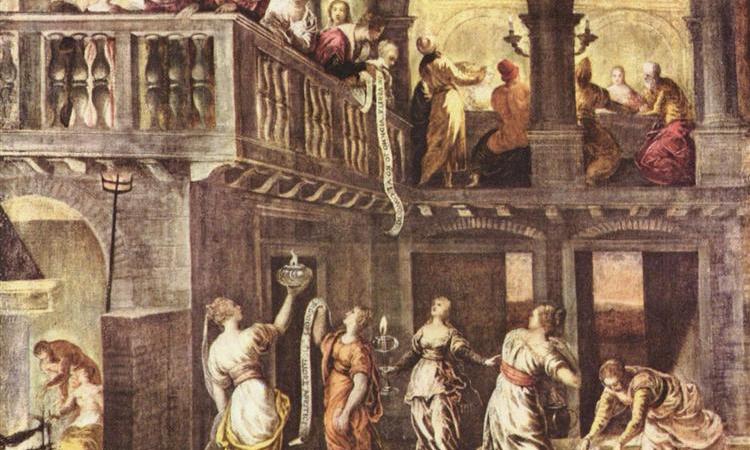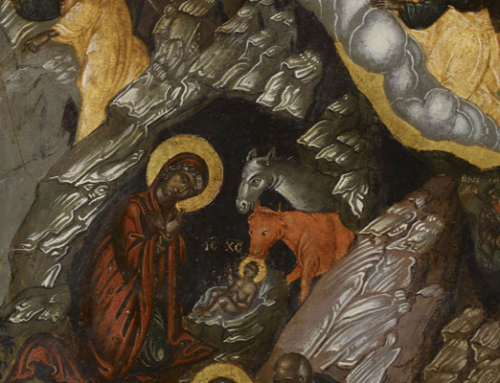Johann Sebastian Bach’s work, Wachet Auf, Ruft Uns die Stimme (“Wake, Awake, for Night Is Flying”) is perfect for Advent. He composed it as a sung chorale in 1731 and later arranged the fourth movement for organ. The music is marvelous in both settings. The chorale has been described by one Bach expert as “one of his most beautiful, most mature and, at the same time, most popular sacred cantatas.”
The text that Bach set to music in this chorale was originally written by Philipp Nicolai in 1599. Nicolai wrote the hymn at a time when his city, Unna, was beset by a plague. When he first published the piece, he wrote in his preface:
Day by day I wrote out my meditations, found myself, thank God, wonderfully well, comforted in heart, joyful in spirit, and truly content; gave to my manuscript the name and title of a Mirror of Joy … to leave behind me (if God should call me from this world) as a token of my peaceful, joyful, Christian departure, or (if God should spare me in health) to comfort other sufferers whom He should also visit with the pestilence.
His piece focuses on the Parable of the Wise and Foolish Virgins (Matt 25:1–13). In that story, ten virgins await the arrival of a bridegroom so that they can celebrate his wedding feast. While they are waiting, the virgins fall asleep. At midnight, a voice calls out, “Behold, the Bridegroom! Come out to meet him!” Five of the virgins, being wise, had brought enough oil for their lamps and went out to meet the bridegroom and join in the wedding feast. The other five, being foolish, did not bring enough oil and could neither welcome the bridegroom nor attend the wedding feast.
The hymn is about watching and waiting for Christ, ever being ready to welcome him. This makes it ideal for Advent, when the entire Church rejoices in the first coming of Christ at Christmas in the fullness of time and looks forward to the second coming of Christ in glory at the end of time.
Consider the central movement of the piece, a beautiful unison line sung by tenor voices:
Zion hears the watchmen sing,
her heart leaps for joy within her,
she wakens and hastily arises.
Her glorious Friend comes from heaven,
strong in mercy,
powerful in truth,
her light becomes bright,
her star rises.
Now come, precious crown,
Lord Jesus, the Son of God!
Hosannah!
We all follow
to the hall of joy
and hold the evening meal together.
These lyrics capture the excitement, the joy, the delight that arise from the arrival of a beloved. The bridegroom comes and all the Church awaits in anticipation that glorious wedding feast (Rev 19:6–9). As Saint Paul writes, “the Day of the Lord will come like a thief in the night” (1 Thess 5:2). The arrival of the bridegroom was announced to the ten virgins at midnight, waking them from slumber. We too should strive to live our whole lives awaiting the coming of Christ. He will come in glory at the end of time, but he also seeks to come into our hearts each and every day (John 14:23).
We can think of the oil in the lamps of the wise virgins as the presence of the Holy Spirit within our souls. It is only by the enlightening flame of the Holy Spirit that we can behold Christ the bridegroom and welcome his coming. We are anointed by the Holy Spirit in Baptism and Confirmation. We thus are prepared to receive Christ in the Eucharist, which is a foretaste of the heavenly banquet. He desires for us to join him in the heavenly wedding feast, let us earnestly desire that as well. Let us pray this Advent for the Holy Spirit to fill our souls, making us eager to receive Christ ever more deeply into our hearts, so that we may enter “the hall of joy and hold the evening meal together.”
✠
Image: Tintoretto, The Wise and Foolish Virgins







